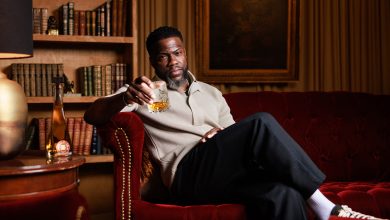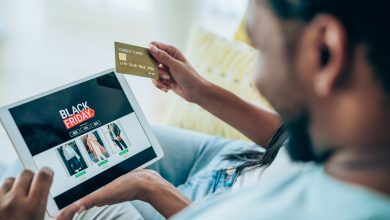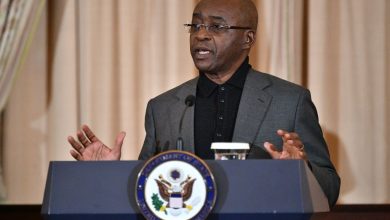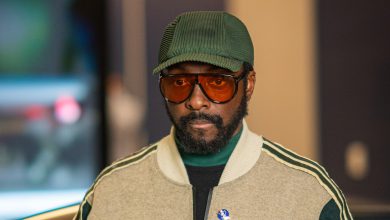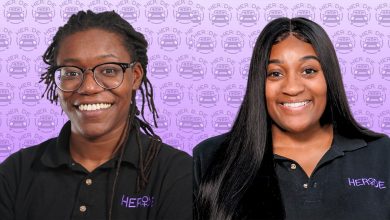This Detroit-Based Founder And Scientist Developed An AI-Powered Device That Can Detect Pathogens On Surfaces Within Minutes
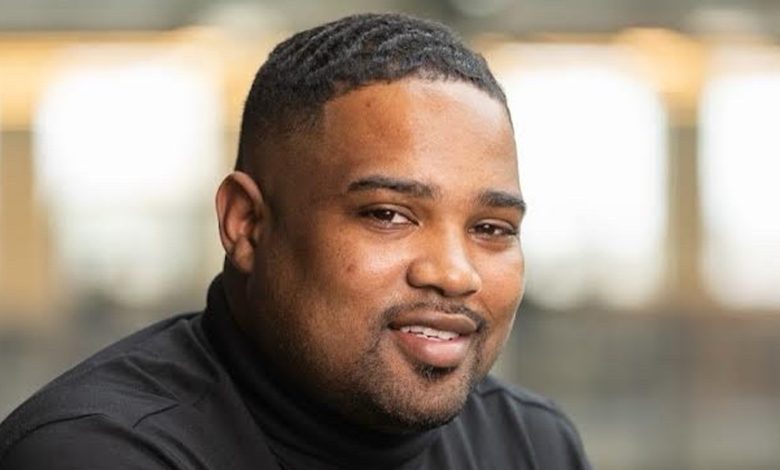

Darrell Marshall knew he would become a scientist when he was 5 years old.
Marshall is a Detroit native who describes his upbringing as “pretty rough,” being raised in the city during the ’80s and ’90s. However, his mother, who was a single parent, constantly reminded him that he could have a north star, and for him this turned out to be science.
“She used to tell me all the time, ‘Hey, you’re gonna do this, you can do whatever you want.’ And I just believed it. And I think in our community, a lot of times people don’t believe that to be true because they don’t see those examples, but I just really trusted my mom,” Marshall recalled during an interview with AFROTECH™.
Marshall attended Wayne State University and graduated with a bachelor of science degree in analytical chemistry in 2011. From there, he pursued a doctorate in bioanalytical chemistry at the University of Nebraska-Lincoln. His thesis was titled, “Combining nuclear magnetic resonance and mass spectrometry metabolomics for infectious disease.”
After graduating in December 2016, he moved to Buffalo, NY, the following month to work for a university-based startup developing tools for early-stage ovarian cancer detection. It didn’t pan out, he said, so in July, he moved back to Detroit and began working for another university-based startup founded by a longtime mentor. He stayed until 2019 before transitioning to a medical research company that helped many organizations gain approval for their products through the Food and Drug Administration.
While working for that medical research company in 2021, Marshall reached a turning point. He took his grandfather to a hospital for a head injury, and an hour later, his grandfather was put on a ventilator. After a month, he passed away from a hospital-acquired infection.
Total Analysis
The incident was “super traumatic,” Marshall shared, and it motivated him to try to ensure that other families wouldn’t have to experience the grief of losing a loved one in a similar manner. That same year, he conceived the idea for a biotech startup, Total Analysis, alongside Kristin Klaus (chief operating officer) and Fatema Bhinderwala (chief technology officer).
“The reason why is after I talked to doctors and nurses, I found out that 90% of all germs are spread on surfaces. And I’m like, ‘Wait, we might be able to do something about this,’” Marshall, CEO, said. “So I thought, ‘Hey, if we can detect those germs on surfaces, maybe we can tell the people that need to know early enough and they can prevent the spread of this.’
“As I started doing more research, I realized that this is a huge problem across many industries,” he added. “Different kinds of hospitals, but in safety net hospitals, specifically hospitals that service Black and brown people, typically it’s [up to] one out of 15 people that might walk into one of these safety net hospitals who will get one of these infections. And that just was too astronomical for me not to try to solve that problem.”
Helios-1
This led to the creation of Helios-1, an AI-powered portable device that can detect pathogens on-site in minutes, according to information provided to AFROTECH™. What’s more, the process can be completed without a lab or specialized training and will target the agriculture and healthcare sectors at its initial launch, projected for Q4 2026.
“Typically, you have to send these samples out to different labs, and that can take days or hours, and there’s a lot of transportation, there’s a lot of different sample handling, a lot of different people touching the samples, and we want to kind of like prevent that and make that all like on-site,” Marshall mentioned.
The device primarily detects bacteria, each with its own molecular fingerprint containing proteins, peptides, and DNA, which can be searched against Total Analysis’s database using machine learning.
“Our database was sampled in [the] lab, and if the database matches the bacteria out in the field, then we can say we got a positive hit,” Marshall explained.
He has secured nearly $400,000 in funding for the device so far, including an Small Business Innovation Research (SBIR) Phase 1 grant from the National Science Foundation. He projects receiving approximately $2 million from the foundation through an SBIR Phase 2 grant.
Long-term, the goal for Helios-1 is to evolve into wearable technology that helps people detect germs throughout their daily lives.
“We want to make it just your on-site pathogen detection, as normal as having an Apple Watch and looking at your heart rate and things,” Marshall explained.
